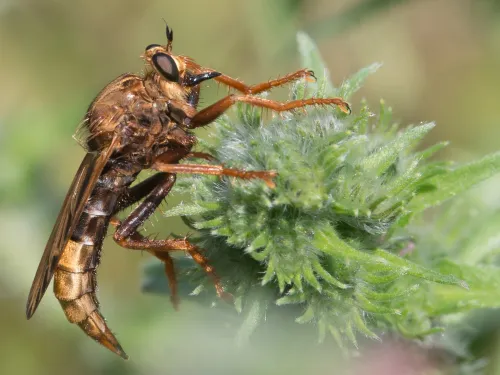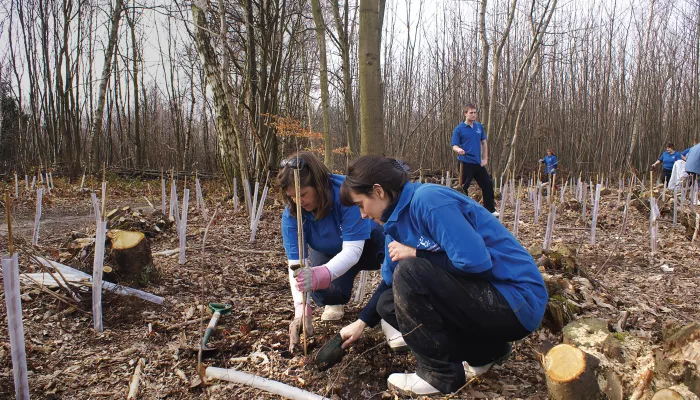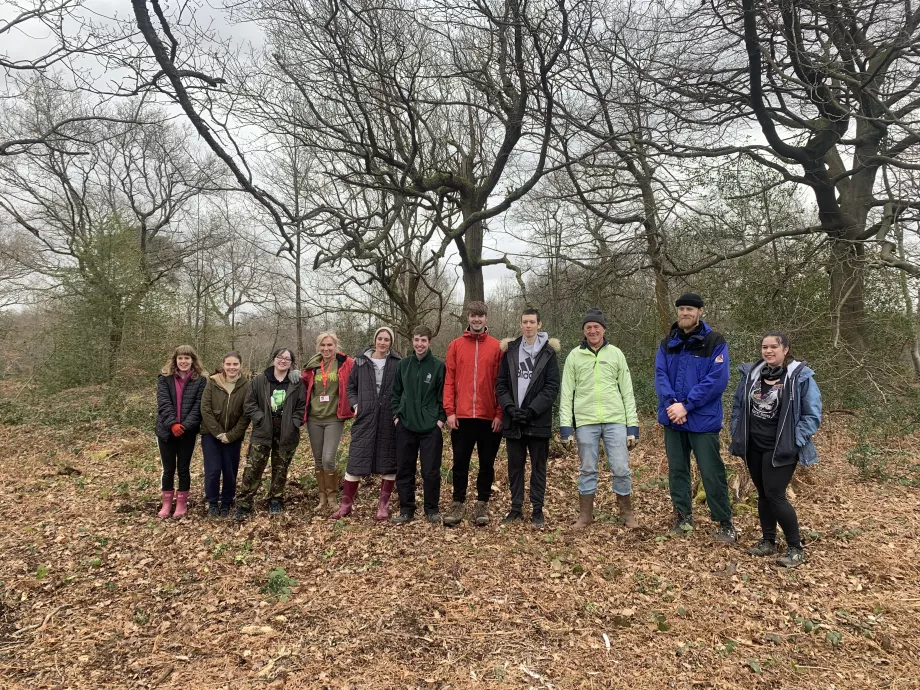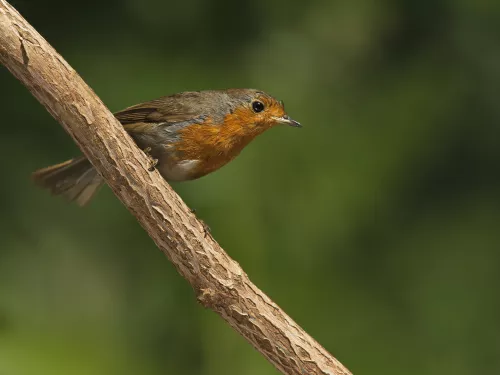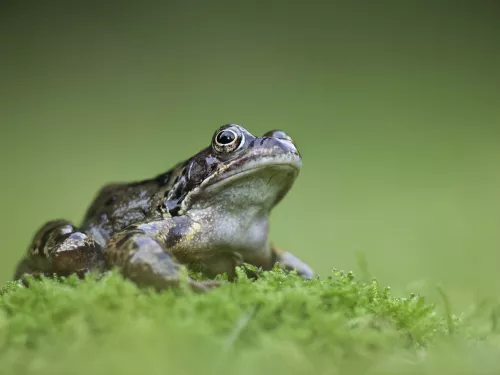Every business needs its team days – they're great for morale and relationship-building. But they don’t all have to involve expensive escape rooms or city trips (however fun those are!). Instead, why not head out and enjoy the wildlife on your doorstep? Some fun options:
6. Create ‘wild’ spaces for the workplace
Creating wild spaces in and around the workplace can significantly benefit both your local environment and the wellbeing of your employees. So, whether you’ve got a sprawling outdoor area or a modest balcony, there are multiple ways your business can cultivate green sanctuaries.
Even in limited outdoor spaces, potted gardens can thrive. Look for native wildflower seeds, herbs, and small shrubs that can be planted in containers. A few pots alone can provide vital resources for pollinators like bees and butterflies – and it’s great fun planting them up, too.
If you have a larger space and more control over what you do with it, consider creating a mindfulness garden. These serene corners can provide retreats for employees, and you should soon have a variety of wildlife visitors, too! If you are able, why not set yourself the challenge of submitting to next year’s Wilder Kent Awards?
Check out our guide to starting a wildlife garden from scratch if you need a little help.
7. Make your corporate gifts greener
Making your corporate gifts greener is not only a thoughtful gesture, but also a powerful statement of your commitment to environmental responsibility. This year, instead of opting for conventional, disposable gifts, try these more sustainable options:
Donations in their name – choose an environmental organisation in line with their values and make a donation to the cause on behalf of your client or supplier.
Experience-based gifts – offer vouchers for eco-friendly, outdoor activities or plant-based cooking classes.
Eco-friendly products – if tangible gifts work better for you, opt for sustainably made items that can be reused and recycled (like bamboo utensil sets, stainless steel water bottles, or organic cotton clothing).
Plant-based gifts – gift literal greenery to your clients and suppliers in the form of potted plants, seed kits, or saplings.
8. Make a start on reducing your carbon emissions
OK, this one’s not so ‘wild’ - but it’s a really important step for all businesses, and doesn’t have to be boring, either. Get your team together and brainstorm ways you can demonstrate your environmental responsibility and reduce your business’ carbon footprint, like...
Implementing energy-saving measures such as LED lighting and energy-efficient appliances
Conducting an energy audit and carbon footprint assessment
Encouraging employees to carpool, use public transport, or bike to work
Recycling and composting in the office
It’s also worth exploring the option of purchasing carbon credits to offset unavoidable emissions that cannot otherwise be eliminated.
Get wild for nature, year-round
We hope these ideas have sparked some inspiration for engaging with the natural world. Remember, wildlife is ever-present – and you can discover and appreciate it year-round.
As the seasons unfold, consider how you can integrate nature-based activities into your wider business culture. In spring and summer, take the opportunity to get outdoors and connect with nature as a team. Later in the year, use the colder months as a time for introspection and planning, perhaps choosing to dive into your carbon auditing and goal-setting activities.
Whatever you choose to do, be sure to embrace the nature around you. As much as you can, help create green spaces, support wildlife conservation causes, and nurture a sense of environmental stewardship within your business. Let’s get wild!
